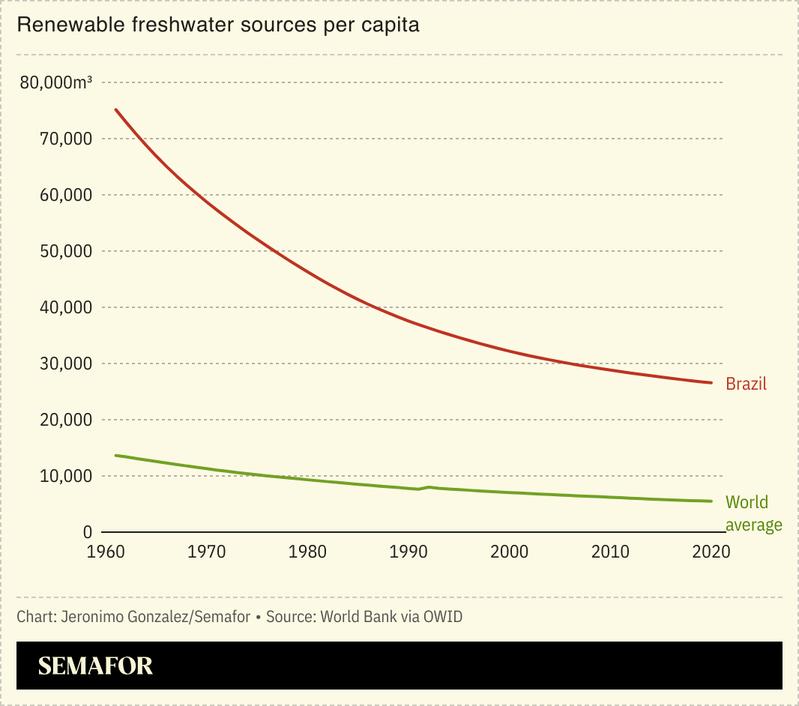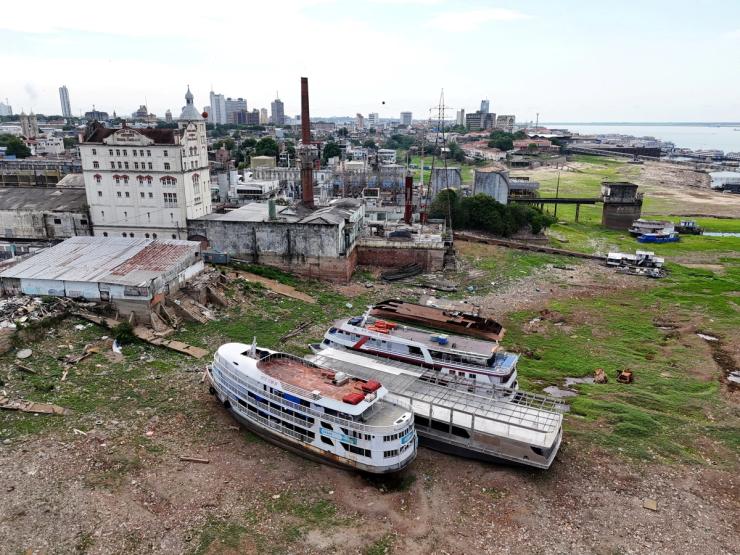The News
Brazil plans to dredge parts of the Amazon River after water levels reached a record low, endangering vital trade routes. Authorities say an artificially deeper river will restart the steady flow of goods, including food and medicine for remote communities.
The move “takes into account the vessels navigating the river, the characteristics of the riverbed, the river levels throughout the year, and the amount of silt accumulated,” Brazil’s National Department of Transport Infrastructure told environmental news outlet Mongabay. However, scientists cautioned that dredging could stir up mercury deposits on the river bottom, which could effectively poison the water — and seriously harm the surrounding ecosystem.

SIGNALS
Dredging could cause long-term damage — and fail to solve the problem
Scientists argue that dredging the Amazon and its tributaries risks unearthing buried mercury deposits, which can harm the development of aquatic and other endemic species, The New York Times reported: “Messing with this sediment is like messing with all this history,” a biologist told the outlet, adding that while the move could feasibly meet the immediate needs of communities who live along its banks, it was environmentally “reckless.” Previous studies have also suggested that dredging is unsustainable in the long term, as the river simply returns back to its original state over time, a scientist told Mongabay.
Drought has ripple effect for global supply chains
Other world governments might soon find themselves in a similar position to Brazil: Climate change has pushed 50% of the world’s rivers below their typical levels, with 2023 the driest year for rivers since 1990, the World Meteorological Association said in a report this week. With more than 90% of the world’s trade moving via oceans and waterways, droughts can snarl supply chains globally, the World Economic Forum noted. For example, low water in the Rhine in 2022 caused severe shipping delays and some cargo ships were forced to sail at just 25% of capacity, while the October 2022 closure of Mississippi River routes cost the US economy an estimated $20 billion in damages.



